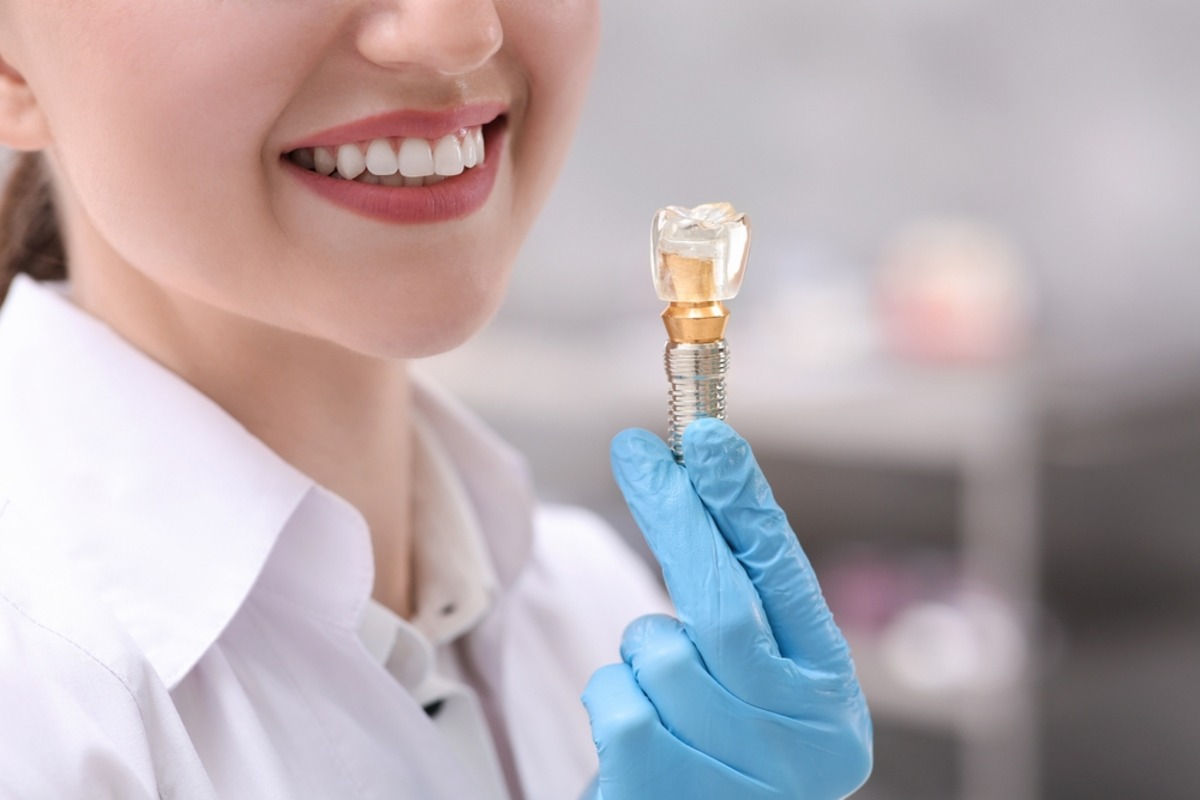
Patients getting dental implants worry about how painful the procedure may be. If you know what to expect when you come in for your appointment, including how long the treatment lasts, you can reduce your anxiety and feel confident about your decision. Get in touch with the dental team, if you have any questions or concern
What are Dental Implants? How Long Does the Process Work?
Dental implants are a popular treatment for missing teeth replacement. They are made of titanium posts or screws that are surgically inserted into the jawbone that act as a strong foundation for a tooth and bridge replacement.
The implantation process typically involves several stages that are performed over a couple of sessions:
- Consultation and Planning: Your dentist will evaluate your smile, take x-rays to determine the condition of your jawbone, and ask you about your habits at home, your needs, and your personal preferences. This information will allow them to develop a personalized treatment plan.
- Implant Placement: Using a dental drill, the titanium post is surgically placed into the jaw.
- Osseointegration: A stable foundation is created when the implant fuses with the bone. This phenomenon is gradual and takes place over several months.
- Abutment and Restoration Placement. An abutment, a connecting piece is attached to the implant when it has healed. A customized dental restoration is placed on top. Patients often receive a dental crown, but a bridge or denture can also be acquired.
You may feel some mild discomfort or experience swelling or bruising during the healing phase. Over-the-counter pain relievers like Advil or Tylenol can help you manage these symptoms. placement of the crown over an abutment is generally less invasive and involves little to no discomfort.
Does the Procedure Hurt?
Our local dental clinic near you prioritizes patient comfort. It doesn’t matter what type of treatment you’re coming in to receive; we’ll ensure that you don’t feel any pain or sensitivity while our SW Calgary dentist works.
That said, it’s still normal to be nervous. To help prepare you, here is what dentists frequently provide to patients so they have a positive, pain-free appointment:
Local Anesthesia – Before the procedure begins, the treatment area will be numbed with local anesthesia. You might feel some pressure or movement, but it shouldn’t be painful.
Dental Sedation – For those with dental anxiety or more complex cases, oral sedation, IV sedation, or even general anesthesia may be available to help you feel relaxed or even sleep through the procedure.
What After the Surgery?
After anesthesia wears off, some discomfort is normal and, fortunately, it is manageable. Here’s what you can expect once your treatment concludes:
- Swelling and Tenderness: Your gums and face may swell, but this usually peaks within the first 48 hours and gradually subsides.
- Mild Pain: Pain is generally mild and can be controlled with over-the-counter painkiller medications. Your dentist near you may also prescribe stronger pain relievers if needed.
- Healing Discomfort: As the surgical site heals, you might feel some discomfort, especially when chewing or brushing the area. This should gradually improve over a few days.
Tips for a Comfortable Recovery
Proper aftercare is key to minimizing discomfort and ensuring a smooth recovery. Here are some tips to help you stay comfortable after getting dental implants:
Follow Your Dentist’s Instructions. Specific aftercare instructions, including how to care for the implant site, what to eat, and which activities to avoid. Follow these guidelines closely to promote healing.
Remember the following guidelines for post-surgery care:
- Use ice packs: Apply ice for 15-20 minutes on the outside of your face and then take a break. Apply this technique frequently to reduce swelling.
- Stick to soft foods: In the first few days after surgery, eat only soft foods such as yogurt, mashed potatoes, and smoothies.
- Maintain oral hygiene: Keep your mouth as clean as possible to prevent infection. Rinse your mouth very gently with warm salt water; do not brush the implant site until your dentist indicates that you may do so.
- Get lots of rest: Rest is important for healing. Avoid strenuous activities for a few days after the procedure to prevent complications.
- Manage pain with medication: If pain medication is prescribed, take pain medication as directed.
Restore your smile with Atlas Dental Centre in SW Calgary. Dental implants not only restore the function and appearance of your teeth but also provide a permanent solution that can last a lifetime.
When you choose Atlas Dental Centre, you can rest assured that you’re in good hands. We are located in SW Calgary, dedicated to serving patients and their families every day. Our approachable and knowledgeable oral health professionals provide customized and gentle care.
Contact us now to schedule a consultation. We will guide you through each step of the procedure and assist you in determining the best dental implant treatments for your needs.
